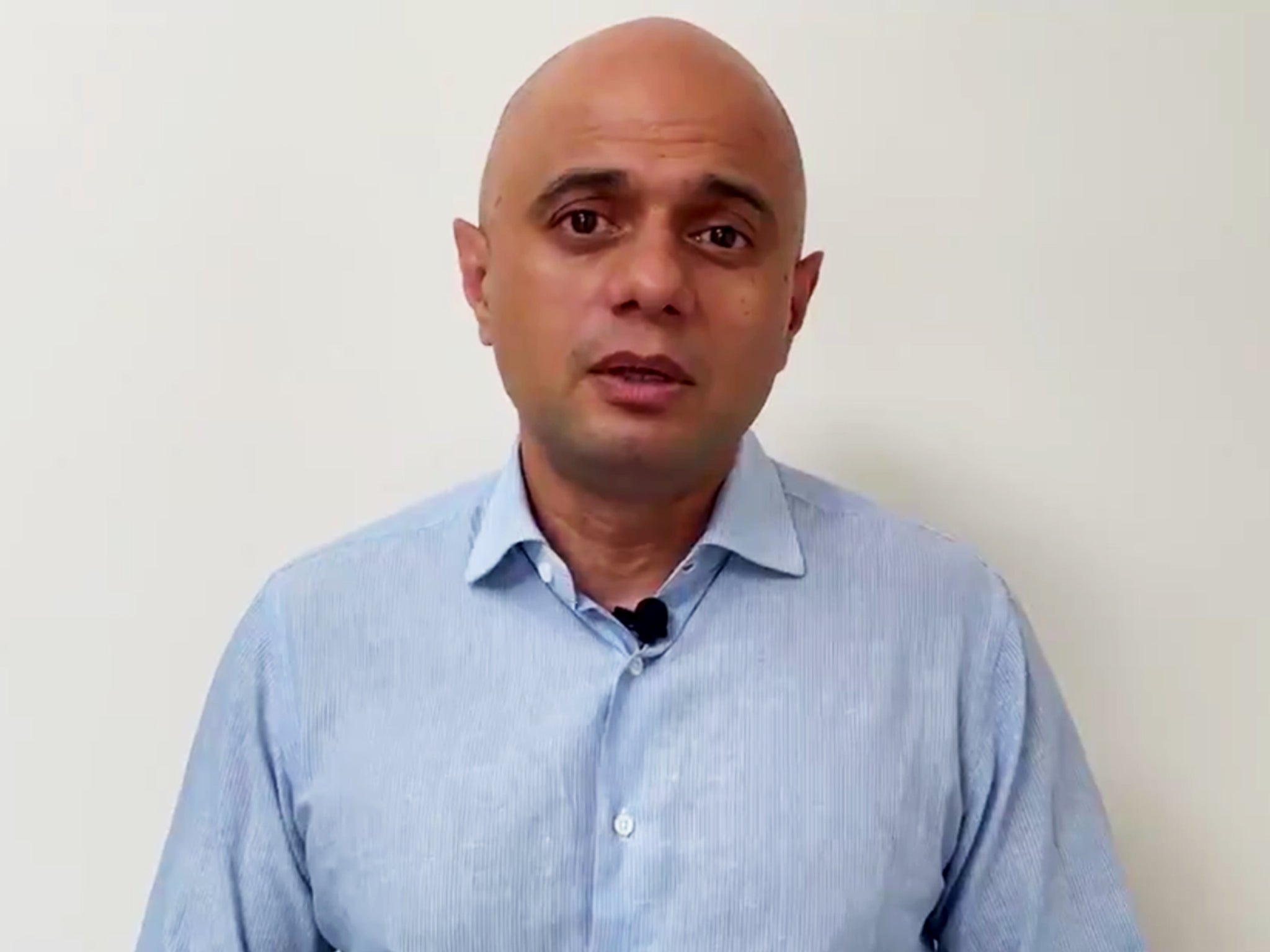Double jabbed: How common is it to test positive after having both vaccines?
Health secretary Sajid Javid said he is infected with Covid after he had two jabs
Your support helps us to tell the story
From reproductive rights to climate change to Big Tech, The Independent is on the ground when the story is developing. Whether it's investigating the financials of Elon Musk's pro-Trump PAC or producing our latest documentary, 'The A Word', which shines a light on the American women fighting for reproductive rights, we know how important it is to parse out the facts from the messaging.
At such a critical moment in US history, we need reporters on the ground. Your donation allows us to keep sending journalists to speak to both sides of the story.
The Independent is trusted by Americans across the entire political spectrum. And unlike many other quality news outlets, we choose not to lock Americans out of our reporting and analysis with paywalls. We believe quality journalism should be available to everyone, paid for by those who can afford it.
Your support makes all the difference.Health secretary Sajid Javid announced on Saturday he had contracted Covid-19, despite having both doses of a vaccine.
Mr Javid said his symptoms were “mild”, but he feels “groggy” in a video announcing he would be self isolating.
But how likely is it that someone who has had both their jabs can be infected with coronavirus?
Studies have shown that the vaccines are highly effective, but there have been reports that a small percentage of fully-vaccinated people will still get Covid. These are called “vaccine breakthrough cases”.
But data shows that they are far less likely to get so sick that they require hospital treatment, or go on to die.
It’s also possible that people contract the virus just before or after they receive their jab before immunity is built up.
It typically takes a fortnight for the body to boost protection, and this is the reason why a minimum of two weeks has to pass after the second jab is administered before a “vaccine passport” is issued.
A Public Health England (PHE) report published on Thursday states that the chances of symptomatic disease and passing the virus to others is drastically reduced after having both jabs – but that infection is still possible.
Uninfected people cannot transmit the virus, so transmission rates are reduced as long as infection rates are reduced. However, the virus can be passed on if the infected person is infected but asymptomatic.
Two doses of vaccines are between 70 to 90 per cent effective against infection, depending on the type of vaccine administered, according to the report.
Two jabs of the Pfizer vaccine reduces symptomatic disease by between 85 to 95 per cent, hospitalisation by 90 to 99 per cent, death by 95 to 99 per cent, and infection by 70 to 90 per cent.
Two jabs of the Oxford/AstraZeneca vaccine reduced symptomatic disease by between 70 to 85 per cent, hospitalisation by 80 to 99 per cent, death by 75 to 99 per cent, and infection by 65 to 90 per cent.
There is yet no data as to the extent to which two jabs prevents the transmission of the virus, but there is some data showing that just one jab prevents passing it on by between 35 to 50 per cent – with the Pfizer jab showing to be more effective than the Oxford/AstraZeneca vaccine.
These figures relate to a period when the Alpha variant – also known as B.1.1.7 or the “UK variant” – had dominated in the UK.
Only two out of 417 people who received their second dose of the Pfizer vaccine or the Moderna vaccine were found to have contracted Covid in a study published in June in the New England Journal of Medicine.
The study cohort were employees of Rockefeller University that had their jabs at least two weeks before they were tested for the virus between 21 January and 17 March earlier this year.
PCR tests showed that the two women – aged 51 and 65, with no risk factors for severe Covid – had been infected by Covid variants. Their symptoms included a sore throat, congestion, headache, loss of sense of smell, and fatigue – which resolved within a week for both women.
Mr Javid said he had taken a lateral flow test (LFT) after feeling “a bit groggy” on Friday evening, and it showed he tested positive.
He said: “I’m grateful that I’ve had two jabs of the vaccine and so far my symptoms are very mild.”

Mr Javid, who on Saturday evening announced the results of the lateral flow test had been confirmed via a PCR test, said he was self-isolating at home with his family in a video posted to his Twitter account.
He also urged those who hadn’t received a vaccine to “get out there and get them as soon as you can”.
Gavi, the global vaccine alliance organisation, states that LFTs – which return on-the-spot results within 30 minutes – are less accurate that PCR tests that are sent to a lab and take about two to three days to return a result.
It’s possible for an LFT to return a false negative result but it’s “highly unlikely” for it to show a false positive result, according to Gavi.

Join our commenting forum
Join thought-provoking conversations, follow other Independent readers and see their replies
Comments